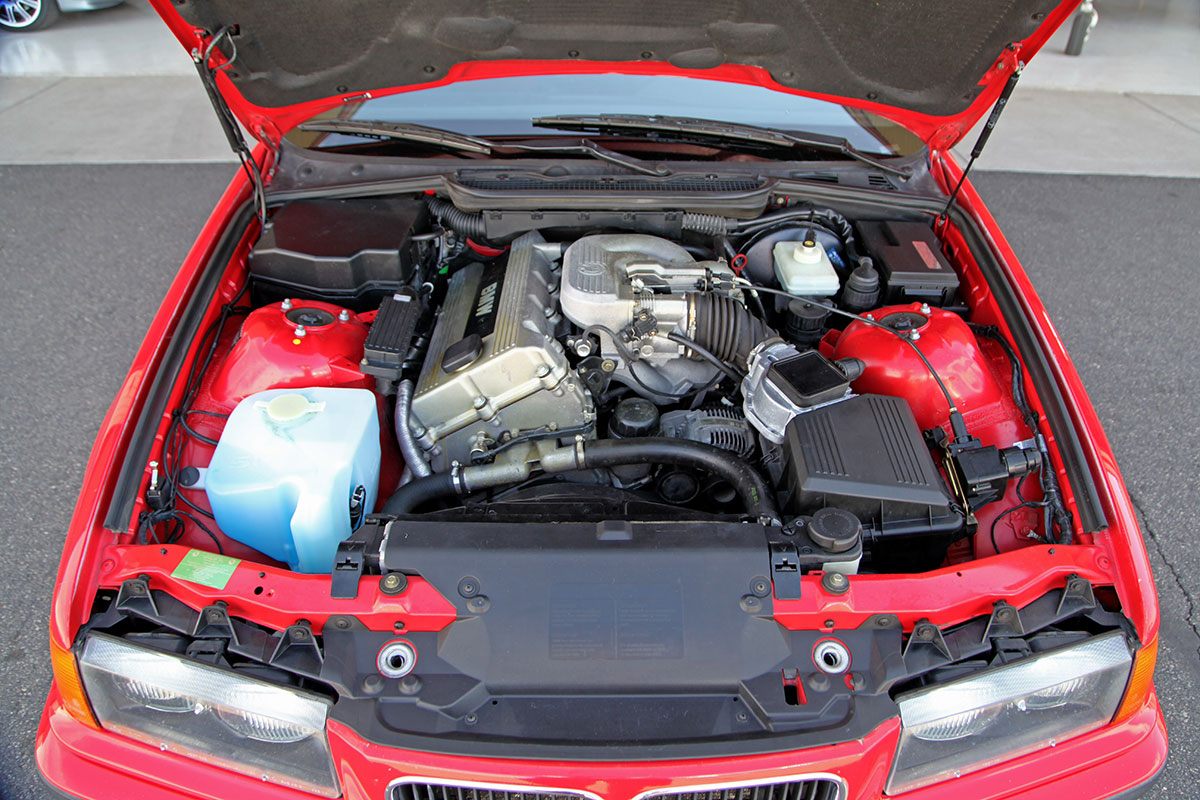BMW 318ti: A Traditional Compact with Ageless Charm
BMW 318ti: A Traditional Compact with Ageless Charm
Blog Article
Essential Considerations for Picking the Best Engine for Your Needs
In the world of picking the perfect engine to satisfy your needs, several essential aspects need meticulous consideration to guarantee ideal efficiency and performance. From the nuanced equilibrium in between power and efficiency to the often-overlooked elements of upkeep and service demands, each aspect plays an essential duty in establishing the most suitable engine for your specific needs.
Power and Performance
When reviewing engines for optimal performance, it is vital to prioritize both power output and performance. Efficiency refers to how well the engine transforms gas into functional power. By carefully evaluating both power and efficiency, you can select an engine that supplies optimum performance and meets your demands properly.
Gas Efficiency and Economic Climate
In the realm of engine choice, the factor to consider of gas performance and economy holds paramount value. Gas performance describes the engine's ability to convert fuel into power with marginal waste, straight impacting operating expense and ecological sustainability. bmw 318ti. When picking an engine, assessing its gas economic situation is critical to determine long-term savings and environmental impact. Engines with higher fuel efficiency not just lower gas expenditures yet additionally decrease carbon emissions, contributing to a greener operation.

Compatibility and Application
Thinking about the fuel efficiency and economic situation of an engine, the next essential facet to address is its compatibility and application within particular functional contexts. Compatibility refers to exactly how well the engine integrates with the general system or tools it powers. It includes variables such as physical dimensions, placing options, electrical user interfaces, and control systems. Guaranteeing compatibility is necessary to prevent problems such as getting too hot, vibrations, or power discrepancies (bmw 318ti).
In addition, the application of the engine is equally important. Different engines are made for specific functions, whether it be industrial equipment, aquatic vessels, autos, or power generators. Understanding the intended application enables for the option of an engine that can supply the needed power output, torque, and operational attributes. A high-revving engine created for efficiency autos would certainly not be suitable for sturdy construction equipment that requires high torque at low rates.
Upkeep and Solution Requirements
Maintenance and solution needs play an important duty in ensuring the longevity and ideal efficiency of an engine. Normal maintenance is vital to stop failures, extend the life expectancy of the engine, and keep its performance. When choosing an engine, it is very important to think about the maker's recommended maintenance routine and the accessibility of solution facilities or certified professionals.
Factors such as the frequency of oil changes, filter replacements, and overall evaluations can substantially influence the engine's efficiency. Some engines might require more regular maintenance based upon their style and use, while others might have longer periods in between upkeep checks. It is important to follow these solution demands to prevent expensive repair services and unanticipated downtime.
Expense and Budget Factors To Consider
When choosing an engine for a particular application,Spending plan constraints usually play a considerable role in the decision-making procedure. When taking into consideration the expense and budget plan effects of selecting an engine, it is necessary to assess not only the first purchase rate but additionally the long-term costs connected with maintenance, gas consumption, and prospective upgrades or repairs. More Bonuses It is read the article important to strike an equilibrium between the in advance price of the engine and its general lifecycle expenses to ensure that the selected engine continues to be financially sustainable throughout its functional life-span.
Elements such as fuel effectiveness, sturdiness, and dependability can directly impact the complete expense of possession of an engine. While a much more expensive engine might have higher upfront prices, it might potentially result in reduced upkeep and fuel expenditures over time, therefore providing better worth in the long run.
Conclusion

Fuel effectiveness refers to the engine's capacity to transform fuel into energy with marginal waste, straight influencing operating prices and ecological sustainability.Elements influencing fuel performance include engine layout, combustion efficiency, and total efficiency optimization. In addition, selecting the appropriate gas kind and grade as suggested by the engine supplier can better enhance efficiency and extend engine life expectancy.
Engines with excellent utility like it features and readily available parts can decrease maintenance expenses and lessen the time the engine is out of procedure - bmw 318ti. It is crucial to strike a balance between the upfront cost of the engine and its overall lifecycle costs to make sure that the selected engine stays economically sustainable throughout its operational life expectancy
Report this page